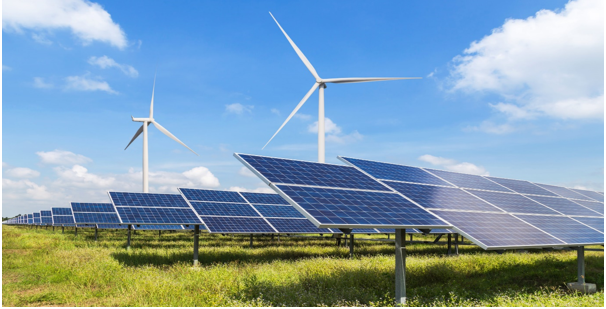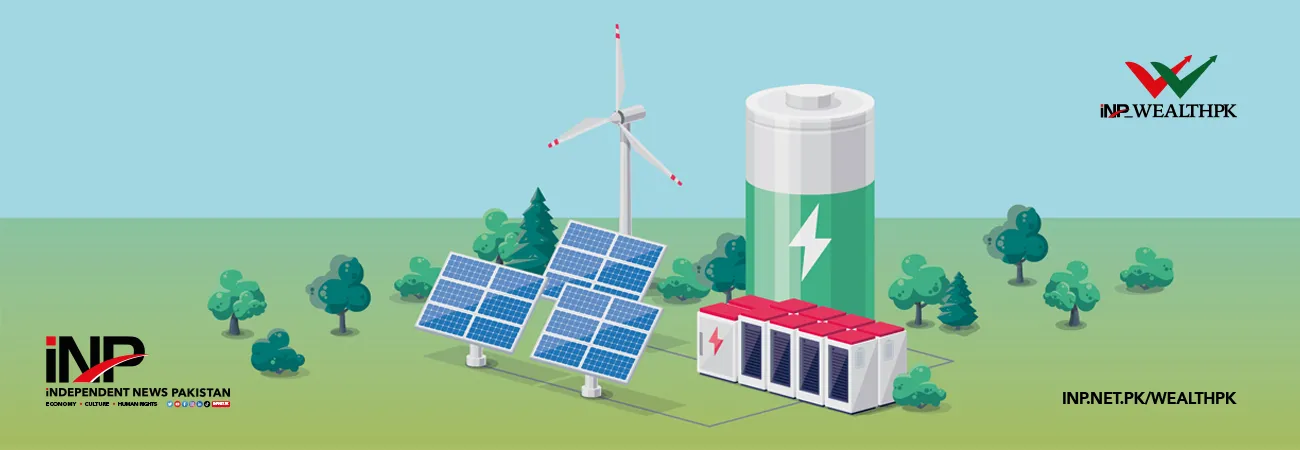i INP-WEALTHPK
Amir Saeed
Twenty-five percent of Pakistan’s population lacks access to reliable energy, which highlights the urgent need for investments in renewable energy sources to meet the growing demand. Talking to WealthPK, Afia Malik, an energy expert at Pakistan Institute of Development Economics (PIDE), said that fossil fuels, which were currently the dominant source of producing energy, posed a significant risk to the country’s long-term energy strategy. “Nuclear energy (9%), hydroelectric power and other renewable energy sources comprise 37% of the energy mix,” she pointed out.

“Economic growth and rapid urbanisation have led to a growing demand for energy that cannot be met sustainably through fossil fuels-based power. As the population continues to grow, and urban centres expand, the pressure on existing energy infrastructure intensifies, making it essential to diversify and bolster the renewable energy sector,” Afia emphasised. She pointed out that regardless of a notable increase in overall access to electricity, 25% of the population still lacked reliable power, highlighting a significant disparity in energy distribution. “This lack of access is particularly acute in rural areas, where 94% of the population relies on biofuels to meet their domestic energy needs.” “The use of these conventional fuels increases the risk of respiratory disorders and other health problems in addition to degrading environment.
Air pollution, soil erosion and deforestation are a few of the negative consequences that jeopardise these communities' economic stability in addition to the environment,” the PIDE energy expert pointed out. She lamented that the reliance on biofuels impacted economic activities in rural areas as the inefficiencies associated with burning traditional fuels hindered productivity. “This situation perpetuates a cycle of poverty and underdevelopment, which further exacerbates the energy crisis.” “Increased investment in solar, wind and biomass energy can play a crucial role in diversifying the energy mix, reducing dependence on fossil fuels and ultimately providing reliable energy access to all citizens. Additionally, adding renewable energy to the national grid would stimulate innovation, create jobs and stabilise the economy,” she suggested.
Talking to WealthPK, Shah Jahan Mirza, Managing Director of Private Power and Infrastructure Board (PPIB), said that access to modern energy sources was critical for creating economic opportunities, improving quality of education and people’s health. “Therefore, addressing the energy access gap is a pivotal aspect of achieving the country’s broader socioeconomic development.” “Efforts to address the energy access gap in the country through off-grid solar solutions and small hydropower projects have so far been inadequate. While off-grid solar systems can benefit isolated communities, they frequently encounter challenges related to maintenance, energy storage and high initial costs, resulting in an unreliable power supply,” Mirza pointed out.
He said although small hydropower projects held potential, they were often constrained by geographic limitations and required significant investment to expand their capacity. “Therefore, there is an urgent need for a comprehensive strategy that focuses on enhancing energy access through development of the renewable energy sector.” “To achieve economic stability, the country must prioritise investments in renewable energy infrastructure. This includes adopting new technologies, expanding the capacity of existing renewable resources, and putting supportive laws into place that promote the private sector’s involvement,” the PPIB managing director suggested.
Credit: INP-WealthPk




